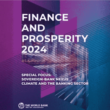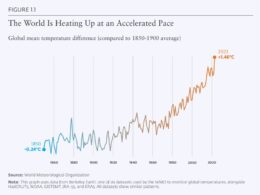Nearly half (46) of the UK’s companies in the FTSE 100 (Financial Times Stock Exchange 100 Index) revised their previously reported climate and sustainability metrics this year, according to a Deloitte analysis.
Deloitte examined climate and sustainability disclosures in the most recent annual and/or sustainability reports as of 31 December 2023. Of these revisions, 85% were related to greenhouse gas (GHG) emissions metrics, while the remaining 15% covered other sustainability topics, including waste, water, diversity & inclusion, and health & safety. Notably, 32% of the revisions involved Scope 3 metrics—indirect emissions arising from a company’s activities, such as business travel, commuting, purchased goods, and waste disposal.
The most common reason for these adjustments was a change in method or measurement approach (44%), a practice permitted for GHGs under the GHG protocol. The second most common reason was the correction of errors (29%).
Steve Farrell, partner and head of sustainability assurance at Deloitte said, “From greenhouse gas emissions to food waste, workforce diversity to pay gaps – companies must increasingly report metrics beyond their financial information and, crucially, those figures must be trusted by investors, employees and other users of this information.”
The analysis shows that a significant number of environmental, social and governance (ESG) metrics reported and published last year by the UK’s largest companies have since been updated, either because measurements have evolved, or worryingly, because they were incorrect to begin with. This is notable because prior year restatements are comparatively rare in the world of financial reporting and indicate a material change to previously reported figures.
“While this could indicate that quality and rigour around non-financial reporting is improving, it equally demonstrates the volatility of ESG reporting in the market today. With the introduction of a new regulatory framework for sustainability reporting – which some firms will report against in December 2024 – the market should expect to see even more adjustments, across an even broader range of metrics, appearing in UK plc reports,” Farrel said.
Under the new Corporate Sustainability Reporting Directive (CSRD), affected companies will be required to disclose a wide range of material qualitative and quantitative environmental, social, and governance information for financial years beginning on or after 1 January 2024. This regulation is mandatory for impacted firms, extending its reach from large public companies to private UK companies with EU operations.
Katherine Lampen, partner and climate and sustainability lead at Deloitte said, “Accurate and transparent sustainability data in annual disclosures is not just good practice, it’s becoming a business imperative. Investors, regulators, and consumers are increasingly demanding this information to make informed decisions, and advanced organisations are using this information to drive corporate strategy. Companies that proactively address this trend will position themselves for long-term success.”






















